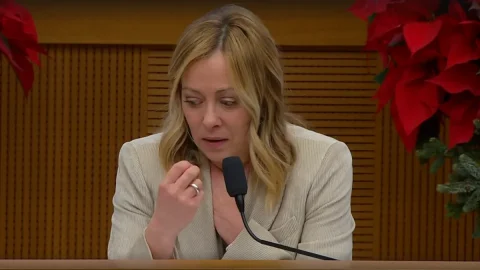The European Commission is ready to grant all the budgetary flexibility requested by Italy – about 14 billion euros, equal to 0,85% of GDP – but in exchange it wants the government to undertake to maintain the deficit/GDP ratio 2017 to 1,8%, with a correction of 0,1 percentage points compared to the 1,9% figure expected from Brussels in the autumn economic forecasts. Not only that: the Community Executive also wants our country to maintain the safeguard clause - read: VAT increase - which the government had prepared as a guarantee in case of need to maintain the budget objectives, but on which it then did reverse. If it doesn't want to touch VAT, Rome should at least explain how it intends to balance a possible lack of increase, which alone is worth 0,45% of GDP (7,2 billion). The European Commission writes it in a letter addressed to the Minister of the Treasury, Pier Carlo Padoan, underlining that the flexibility granted to Italy is unprecedented.
The text, signed by the Vice-President of the Commission Valdis Dombrovskis and the Commissioner for Economic and Financial Affairs Pierre Moscovici, confirms the figures that have been circulating for some time on the flexibility coming to our country: 0,5% of GDP for structural reforms made, 0,25% for productive investments, the rest to take into account the costs of the migrant crisis (0,04%) and the security crackdown (0,06%).
The letter expresses support for the Renzi government's "ambitious" reform programme, which "can make a significant contribution to boosting the country's potential growth, increasing employment and strengthening the well-being of Italians". That said, the conditions are recalled because the flexibility requested by Italy can only be granted if: there are credible plans for debt correction; whether the discount granted will really be used for investments; whether there will be progress in implementing the reforms.
Meanwhile, the European Commission is expected to approve tomorrow its judgments on member states' budget laws for 2016 and its "country-specific recommendations", provided that the heads of cabinet of the commissioners, meeting today in Brussels, confirm these points in the College meeting agenda.
The uncertainty is primarily linked to the situations in Spain and Portugal, which could lead the Commission to postpone the report cards. In fact, the two Iberian countries have failed to reduce their GDP deficit to the fateful 3% and are therefore in a situation of clear infringement of the rules of the Stability Pact, to the point that the Commission could theoretically envisage the request for financial sanctions of up to 0,2% of their respective GDPs.
The Prime Minister Matteo Renzi, from Bari, commented on the Commission's decision: “Today in these very hours Europe recognizes us a further element of flexibility, even less than I would have liked. But it's an important fact, it is
a success for the whole country”.
“Until a few weeks ago – added the Premier – they said: 'That's not the way it is done in the EU, you'll see what a beating, what a beating they'll take'. And we have seen it. We finally saw it. Today we obtained a significant, important agreement, it's not the solution to all evils but it's a principle: Europe is there on the subject of flexibility”.





